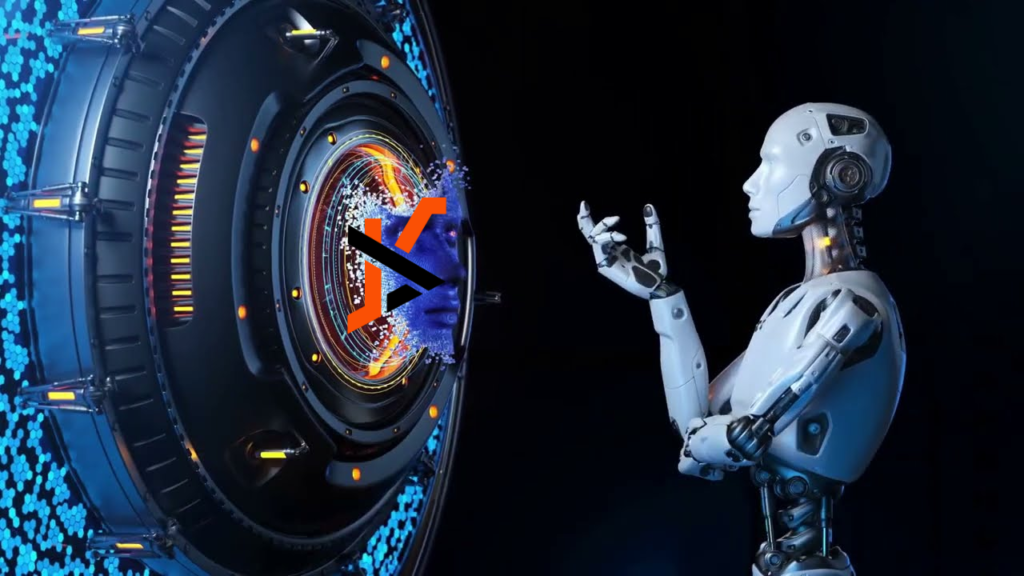Quantum computing is on the brink of revolutionizing various industries by offering vastly more powerful computing capabilities than classical computers. One area that is poised to be massively disrupted is artificial intelligence with the rise of QuantumAI. Quantum computers promise to accelerate the development of artificial superintelligence by leveraging the strange nature of quantum mechanics. Let’s explore the exciting prospects of Quantum AI and how it could shape our future.
What is Quantum Computing?
Before understanding Quantum AI, we must first grasp some basics about quantum computing. Quantum computers use quantum bits or ‘qubits’ that can exist in superpositions of both 0 and 1 simultaneously. It allows quantum systems to evaluate all possible solutions to a problem in parallel. Additionally, quantum phenomena like quantum entanglement and tunneling further boost their computational power.
In essence, quantum computers can simultaneously distribute operations across many different computations instead of executing them sequentially like traditional computers. This exponential parallelism enables quantum machines to solve some complex issues at breakneck speed that would take classical computers millions of years to solve. Some examples include factoring large prime numbers, simulating quantum systems, and optimizing machine learning models.
How Can Quantum Computing Augment AI?
Researchers believe we can build more powerful artificial general intelligence by combining quantum computing with traditional machine learning techniques. Here are some ways quantum technologies stand to supercharge AI:
- Quantum neural networks – Quantum neurons that leverage superposition and entanglement could learn patterns in data much faster than classical neural networks. It would allow training AI models on far more complex problems.
- Explainability and interpretability – The bizarre quantum wavefunctions could provide novel algorithms to explain better the inner workings and decision-making processes of complex AI models.
- Generative learning – Quantum versions of generative adversarial networks (GANs) and other algorithms may improve our ability to synthesize new images, videos, text, and data types.
- Reinforcement learning – Quantum reinforcement learning agents interacting with quantum simulation environments have the promise to solve complex multi-agent coordination problems at a superhuman level.
- Quantum enhanced machine learning – Classical machine learning techniques combined with quantum algorithms like Grover’s search and optimization could lead to gigantic leaps in model performance.
- Quantum natural language processing – Large language models may acquire human-level language comprehension abilities via techniques like quantum-inspired concept networks trained on quantum computers.
The First Steps Towards Quantum AI
Though we are still in the early days, researchers worldwide are already taking initial steps to build practical Quantum AI systems:
- Developing qubit hardware: Companies like IBM, Google, Intel, Rigetti, IonQ, and others are engineering larger and more error-resilient quantum processors.
- Quantum simulations: Scientists use existing quantum computers to simulate small molecules and materials and optimize chemical reactions in ways classical computers can’t.
- Quantum machine learning prototyping: Experiments showing quantum neural network models and reinforcement learners outperforming classical counterparts on toy problems.
- Quantum optimization for ML: Algorithms ported to quantum computers find optimal hyperparameters faster than classical optimization methods.
- Quantum concept networks: Exploring quantum-inspired techniques to represent knowledge and train AI models on structured concepts instead of raw data.
What Lies Ahead for Quantum AI?
Over the next decade, quantum computing hardware is expected to scale significantly in qubit count, connectivity, fidelity, and other metrics based on current exponential growth trends. It will open up possibilities for building accurate Quantum AI systems with human-level capabilities:
- Generalized quantum search: Finding the best solutions for complex combinatorial optimization problems like protein folding and drug discovery faster than ever.
- Advanced simulations and modeling: Better understanding the brain and developing human-level artificial general intelligence through biologically accurate simulations on quantum computers.
- Quantum natural language processing: Achieving deep comprehension of language nuances and context through large quantum language models trained on petabyte-scale corpora.
- Quantum machine superintelligence: Beyond human artificial general intelligence that leverages quantum technologies’ massive parallelism and learning prowess to achieve superhuman aptitude across various domains.
Are you excited to see how Quantum AI shapes our future? The emerging field holds tremendous promise to revolutionize artificial intelligence as we know it today. Despite significant challenges, with advancements in quantum hardware and algorithms, researchers are gradually inching closer to building quantum artificial general intelligence capable of human-level and beyond capabilities. Only time will tell how Quantum AI impacts our society, but one thing is sure – the future will be ever more fascinating!

